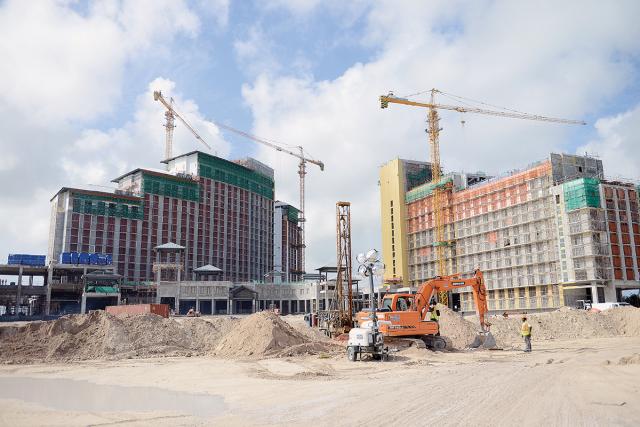In her twice-weekly column in the PUNCH, columnist Nicki Kelly says that Prime Minister Hubert Ingraham’s concerns about the viability of the Baha Mar project may be justified.
For those who view the project as the salvation of the Bahamian economy, the announcement that the Chinese government had approved the $2.6 billion deal with Baha Mar has created a frenzy.
Robert Sands, Baha Mar’s senior vice-president of governmental and external affairs, was quoted as saying: “We are hopeful that the government approval process moves as quickly as possible to allow us to begin construction during the latter part of this year.”
Former Chamber of Commerce president Dionisio D’Agullar went even further, saying the economy desperately needs this project and that any MP who opposed the issue of work permits for some 5,000 Chinese workers “should be voted out of office.”
Ms Kelly says: “This attempt to place the onus for the success or failure of the Baha Mar project on the government is not just a case of misguided enthusiasm. It is a clear and calculated effort to publicly pressure the Ingraham administration into endorsing a development about which it has justifiable concerns.”
One of these is Baha Mar’s financlal viability.
What the Baha Mar cheerleaders seem to forget is that the company still owes over $300 million to the Bank of Nova Scotia.
The money was borrowed to purchase the govemment-owned Radisson/Sheraton hotel ($39 million); the Wyndham and Nassau Beach hotels ($165 million); and for refurbishment of the Sheraton ($90 million). Plus, accrued interest of $50 million.
Some arrangement would have to be reached with the Bank to free the development of any prior encumbrances, before construction can begin.
Supporters of the Baha Mar project appear to be pressuring the Prime Minister into supporting a development about which he has strong reservations.
Only weeks ago, Mr Ingraham told reporters that, had the FNM been the government at the time, “we would never have agreed to a deal like that for The Bahamas.”
Mr Ingraham has expressed doubts about whether the company had the financial resources to meet its commitments as prescribed under the terms of the agreement.
The initial agreement called for a $1 billion redevelopment plan for Cable Beach to begin within 18 months of the signing of the agreement (by October 2006), and completed by December 2009. That investment has since been increased to $2.6 billion.
Baha Mar was obligated within the 18-month period to provide the government with “reasonably satisfactory evidence” of the following:
1. Commitment of the required $400 million equity in the project;
2. Equity participation and commitment to the project by world class international hotel and casino partners;
3. Adequate funding for the $1 billion project;
4. Preparation and delivery to the government of detailed plans and specifications to meet the projected start dates.
Baha Mar failed to satisfy these conditions.
The PLP has incorrectly tried to blame the Ingraham administration for the collapse of the Baha Mar development and the withdrawal of Harrah’s Entertainment as an equity partner.
In 2008, Mr Ingraham told the House that he didn’t think Baha Mar had the financial resources to undertake the Cable Beach project. Shortly after, in a “Dear John letter” to Baha Mar, former partner Harrah’s made clear that they were also apprehensive concerning Baha Mar’s “ability to execute in a timely manner.”
Baha Mar has since sued Harrah’s for breach of contract, but the lawsuit was thrown out by a U.S. judge.
Ms Kelly concludes her column by stating: “In view of Baha Mar’s shaky history, Mr Ingraham is understandably cautious about this latest undertaking, because the last thing the Bahamas government and the Bahamian people need is the blight of another failed development, this one in the heart of Cable Beach.”



